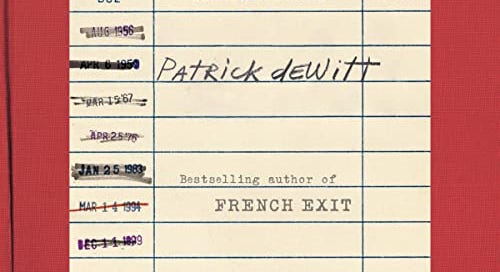Bob Comet, a retired librarian, lives a solitary life in Portland, Oregon. He’s no misanthrope—he has simply always struggled to make friends, and he believes that he prefers it this way, or at least that he doesn’t mind. He enjoys taking long walks each day, and on a particularly cold day, he encounters an elderly woman who is clearly lost, underdressed, and staring into space. There’s a name badge listing her nickname, Chip, and the location of the senior center where she lives, so he returns her to her home. When he decides to volunteer at the center, Bob sets his life on a new course. Suddenly, he’s among peers, and he begins to make friends for the first time since his twenties. The novel flashes back to this earlier time in Bob’s life, and to his childhood, and we get to know his past as well as the present that’s unfolding in real time.
The central plot of The Librarianist revolves around Bob coming to terms with the past. The problem is that I had only a passing interest in that journey. Bob isn’t that compelling a character. I neither hated him nor loved him. He’s just there. And I was so interested in the side characters, who come to life much more vividly, that I forgot about his journey.
This novel’s strong point is its secondary characters, as its protagonist never achieves the same depth. From a pair of aging vaudeville performers to the manager of the care center, these are the people who feel real. To some degree, this is an extension of the walled-off life Bob has intentionally lived—other people do possess a greater range of experience. But it feels as though when it’s time for him to step forward, he does so only because the plot says it’s time.
The inevitability of death looms large over a novel about the later years of life, and it is here, again, where the secondary characters shine. Bob doesn’t seem to have strong opinions about death and dying, which is truly odd given his surroundings among those in their final years, some of whom have crippling dementia or other disabilities. The characters I found interesting try to pack as much life as they can into their time, and that just makes for more fascinating stories.
I wasn’t aware when I read this one that deWitt also wrote The Sisters Brothers, a western set in the 1850s. They could not be more different, and I’m afraid that The Librarianist suffers by comparison. I absolutely loved The Sisters Brothers, despite its brutality, but I found something missing in The Librarianist. It lacks the same tight pacing and emotional connection to the characters. There’s a certain degree of irony in the fact that I felt a deeper connection with the ruthless Sisters brothers, hired assassins, than I felt with a librarian. Without good pacing and emotional depth, the structure can feel like it’s just there to provide space for reveals, and those reveals have little impact. I didn’t mind Bob or his story. I’m not sorry I finished the book. I just didn’t feel that it resonated with me. Have you read it? Did you feel more of a connection to Bob?




